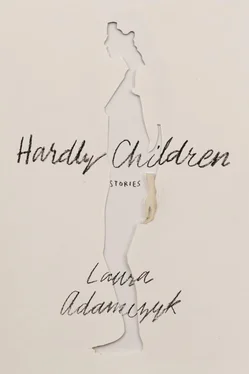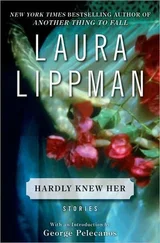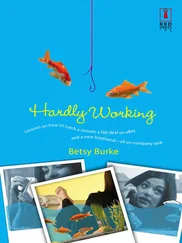II.
SOMETIMES SHE GOES ALONE.As much as she likes sitting next to someone during and dissecting the whole thing afterward, she hates being whispered to, can’t listen, doesn’t want to miss anything. She would say that she knows when a piece of dialogue can go unheard or, better, when there is no dialogue and she can lean over and whisper hotly into her friend’s ear or run to the bathroom, get another diet cola, and hurry back. When alone, she slinks down and puts her feet up on the chair-back in front of her, slipping on the glasses she’s supposed to wear for driving but doesn’t. She wishes they still played those old cartoons, the ones with the dancing bag of popcorn and soda, a vision of oversized candy boxes inside an illuminated glass case like a display for rare books or dinosaur bones. She always buys something, thinking that her extra three dollars will save the little theater. Sometimes it’s a box of Dots that she’ll dig out of her teeth the rest of the night, her molars throbbing; other times it’s a waxy bag of popcorn in place of dinner. If she’s not alone, she’ll suggest to whatever date she’s dragged along with her that he get something too. What do you mean you don’t like popcorn? What about Good & Plenty?
Tonight the man next to her, with only the gentlest nudging, bought a box of Milk Duds. With her eyes on the screen, she puts out her palm, and he shakes a few into it. But this man is not her lover. JD is a married friend from work who also visits the little theater with a frequency he might call often, though he is not the kind of man who tries to convince anyone of anything about communal movie watching or historical landmarks. He is the kind of man whose wife knows just where he is tonight. She tells him as he’s leaving the house, Have a good time. See you later. Tell Cheryl I said hello. JD’s the only one Cheryl will really talk to at the printing press where they work—or rather roll her eyes to, flash a friendly middle finger to—the pair of them speaking the same quiet, sarcastic language, their jokes swift, easy things. The other day in the break room Cheryl sighed, flipped shut a magazine, and, looking over to him, said, The whole world is crazy except for you and me. And I’m beginning to worry about you. She sometimes worries that he’ll get a better job and leave her there alone and stop going to movies with her.
On the screen before her, the man, after leaving the convenience store, after his car has broken down, walks along the shoulder of the midnight highway. There is only the darkness of his body against the blue dark of the night and the sound of his feet crunching over gravel. Then a car, low and long like his, slows down and stops ahead of him. The camera shows the man, from a quiet distance, approaching then leaning down into the passenger window. He opens the door and gets in, the car heading west, though east, the viewers know, is where the man’s home lies. The camera retreats as the car moves forward, its red taillights growing dim, the scene fading to black. A beat, a breath for the viewers to wonder if this (after over an hour of film) is it, but the dull blackness of the screen then blooms into the reflective impenetrability of a pair of aviator sunglasses. The camera pulls back to include the rest of the man’s face—the ruddy brown of his mustache and jawline stubble, a cigarette raised to his lips—giving nothing but the bright image of the man, the close sound of his dry breath. A further withdrawal reveals his head of hair paling to a West Coast blond and the man’s open denim shirt, the wooden handrail he leans against, the boardwalk he stands on. Girls in knee socks skate past, while an old man on the ground whispers a song from behind a six-string.
Then the man is smoking another cigarette at a table outside a bar, palm trees waving before a blue, cloudless sky. A medium shot: the same denim shirt as before, but his sunglasses off his face, and a waitress, looking up, switching out the ashtray on the man’s table, predicting the season’s one night of rain. She leaves, and he picks up a manila envelope on the table and slides out an eight-by-ten glossy, gently gripping the photograph by its thin white border. It is an image of the man, cut off at the collarbone. His light brown hair is soft and clean, a gentle wave down to his shoulders; his mustache is trimmed, pushing out just past the corners of his lips. His mouth unsmiling, his eyes dead on into the camera but seeming to look past it, behind the camera, to Cheryl and JD and all the other viewers in the little theater.
In a soft-focused past, a woman inside a different bar sits down beside the man. She wears her long, straight hair split down the middle, and her blue-jeaned hips fill the curve of the chair’s seat. A circle of beer bottles on the table, a few gentle flips of that silky blonde, backlit hair, and she’s telling him he should get headshots. That he has a face both familiar and mysterious. The kind of face that makes it unclear whether he is a good guy or a bad guy. He could be anyone, she says. The man leans away, slings his arm on the back of his chair, amused by this stranger, this woman, talking to him about his appearance. Would I shave, he asks, smirking. Never, she says. Not in a million years. Everybody leaves a day or two of hair on their faces these days. She has been an extra in a number of films, she says, and once her name appeared in a set of credits as “Pretty Girl #2.” As she speaks, the man shakes his head at the film titles, not recognizing any of them. He pulls out a cigarette and tosses his pack onto the table. The camera directs its attention to the woman’s easy-smiling mouth. Her teeth are white and straight; soft stars of light glint from her red lips. She does not know about the wife whom the man has left at home, and she doesn’t need to know. It’s not about who the man was or even who he is but who he can become. Everyone here looking forward to some unknown, glossy future, as slick and beautiful as the woman’s hair, the curtain of it folding around her as she reaches forward to take a cigarette from his pack and places it in the break of her smile.
The film returns to the man sitting alone in the warmth of the outdoor patio, flies buzzing around a sticky sheen on his table. Both his gaze toward the beach and the camera’s proximity point to where he’s dreaming: What fictitious name will accompany his own in that roll of white words on a black background? What song will play as his name slides to the top of the screen then disappears? Placing his photograph back into the envelope, he stabs out his cigarette and drains the last of his pint. He stands, replacing his sunglasses on his face, and pivots away from the camera, walking toward the sound of gulls and surf. A medium to long shot: as he walks, slowly growing smaller, the last of the day’s sun fills the frame around his body, whiting him out like the flash of light people are supposed to see before they die.
The screen blackens. Off, as though someone hit a switch.
The bald, cheery owner jogs down the aisle to the lip of the shallow faux stage, the lights turning from dark to dim.
We thought this would be a good time to call a break, he says. But before we do, I’d like to make an announcement.
Cheryl, even as she has enjoyed the movie so far, admits that it’s a gutsy move on his part to call an intermission. It has been a quiet, moody film without any Hollywood placeholders to explain itself to viewers. No bomb to dismantle or brass-filled, climaxing music; no hapless single woman in her thirties eating too much ice cream or tripping down a set of stairs. She has no idea what might push the film to three whole hours and wonders how many of the few moviegoers will leave.
The owner claps his hands, rubbing them together, and makes the same announcement he’s made every night for the past two weeks: In order to meet the demands of changing technology, the theater must purchase a new digital projector. Movie distributors are transitioning away from film, and the new projector is costly. Quite costly, he says. But we need it to stay open. And we can’t do it alone. We need your help. He lists different donation levels, counting them off on his fingers. He has the harried yet optimistic eyes of the overworked, the underpaid, the hopelessly dedicated. See the thirty-five-millimeter films while you can, folks, he says, then runs back up the aisle to man the concession stand.
Читать дальше











